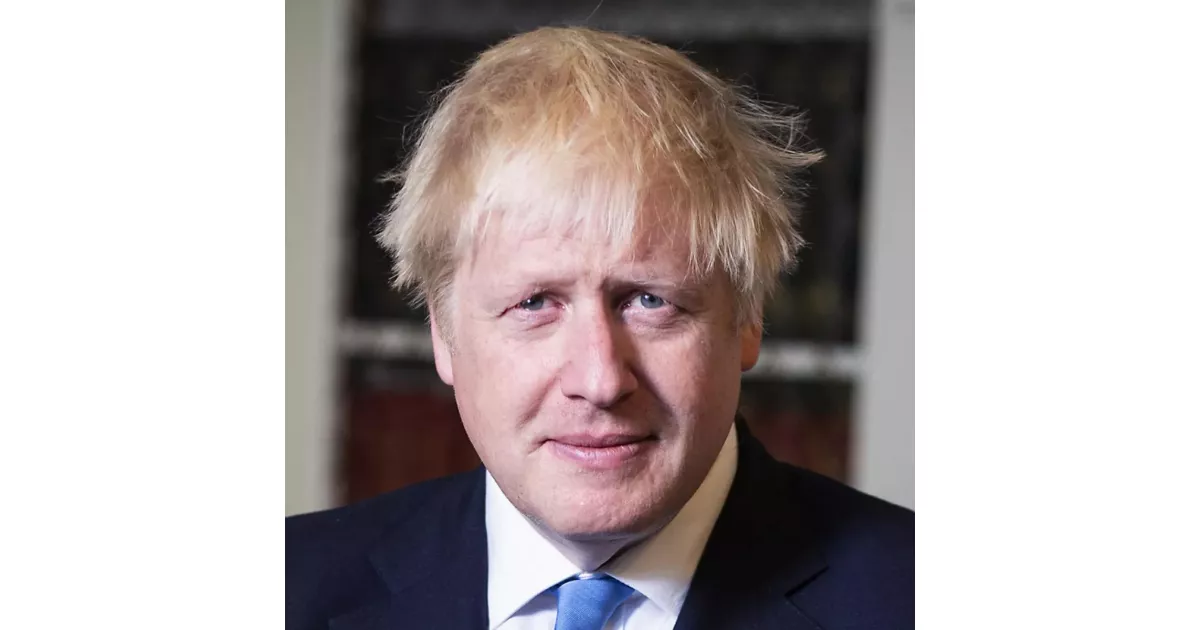Public opinion and media debates around Boris Johnson—discover key moments of controversy.
Boris Johnson, a British politician and writer, served as Prime Minister of the United Kingdom from 2019 to 2022. Prior to this, he held prominent positions including Foreign Secretary (2016-2018) and Mayor of London (2008-2016). Johnson also served as a Member of Parliament for Henley (2001-2008) and Uxbridge and South Ruislip (2015-2023). His political career has been marked by his leadership roles within the Conservative Party and his involvement in significant events like Brexit.
1936: Comparison of Putin to Hitler
In March 2018, Boris Johnson compared Vladimir Putin's hosting of the World Cup in Russia to Adolf Hitler's hosting of the Olympic Games in Berlin in 1936.
1948: Comparison of Rohingya Muslims persecution with the displacement of Palestinians
Boris Johnson condemned the persecution of Rohingya Muslims in Myanmar, comparing the situation with the displacement of Palestinians in 1948.
June 1995: Recording of Johnson's conversation with Darius Guppy made public
In June 1995, a recording from 1990 of a telephone conversation between Boris Johnson and his friend Darius Guppy was made public, where Guppy asked Johnson for journalist Stuart Collier's private address to have him beaten due to an insurance fraud investigation. Johnson agreed but expressed concern about being associated with the attack. Upon publication of the conversation, Johnson claimed he did not fulfill Guppy's request.
1999: Allegation of Inappropriate Behavior
In 1999, journalist Charlotte Edwardes alleged that Johnson squeezed her thigh at a private lunch at the Spectator. Another woman reported a similar experience. A spokesman denied the allegations.
2000: Affair with Petronella Wyatt
Between 2000 and 2004, Boris Johnson had an affair with Spectator columnist Petronella Wyatt, resulting in a terminated pregnancy and a miscarriage.
2001: Spoke out against plans to repeal Section 28
In 2001 Johnson spoke out against plans to repeal Section 28, saying it was "Labour's appalling agenda, encouraging the teaching of homosexuality in schools".
November 2004: Dismissed as vice-chairman and shadow arts minister
In November 2004, Johnson was dismissed as vice-chairman and shadow arts minister by Michael Howard after initially denying allegations of an affair with Petronella Wyatt, which were later proven true.
2004: Affair with Petronella Wyatt
Between 2000 and 2004, Boris Johnson had an affair with Spectator columnist Petronella Wyatt, resulting in a terminated pregnancy and a miscarriage.
2004: Editorial in The Spectator on Hillsborough disaster
In 2004, Johnson published an editorial in The Spectator suggesting Liverpudlians were wallowing in their victim status and "hooked on grief" over the Hillsborough disaster, partly blaming it on "drunken fans".
2005: Criticism for Views on Islam in The Dream of Rome
In 2005, Tell MAMA and the Muslim Council of Britain criticized Johnson for arguing in an appendix to his book, 'The Dream of Rome', that Islam had caused the Muslim world to be "literally centuries behind" the West.
April 2006: Alleged Affair with Anna Fazackerley
In April 2006, the News of the World alleged that Boris Johnson was having an affair with Times Higher Education journalist Anna Fazackerley.
September 2006: Controversy over cannibalism comment
In September 2006, Papua New Guinea's High Commission protested after Johnson compared the Conservatives' frequently changing leadership to cannibalism in the country.
May 2008: Formation of the Forensic Audit Panel
In May 2008, the Forensic Audit Panel was announced, tasked with monitoring financial management at the London Development Agency and the Greater London Authority. Johnson's announcement faced criticism for the perceived politicisation of the nominally independent panel.
2009: Fathered a Daughter with Helen Macintyre
In 2009, Boris Johnson fathered a daughter, Stephanie, with arts consultant Helen Macintyre.
2011: Condemning Occupy London movement
In 2011, Boris Johnson condemned the anti-capitalist Occupy London movement, while championing London's financial sector following the 2008 financial crisis.
2012: Affair with Jennifer Arcuri
From 2012 to 2016, American entrepreneur Jennifer Arcuri said that she had an affair with Boris Johnson.
2012: London hosts the 2012 Summer Olympics
In 2012, London hosted the Summer Olympics, with Johnson as board co-chair. He improved transportation but was accused of covering up pollution ahead of the games.
2015: Criticism of Donald Trump
In 2015, Boris Johnson criticized Donald Trump's comments about no-go zones in London, deeming him "unfit to hold the office of President of the United States".
February 2016: Endorsement of Vote Leave
In February 2016, Boris Johnson endorsed Vote Leave in the "Out" campaign for the 2016 European Union membership referendum, causing the pound sterling to slump.
April 2016: Racist comments about Barack Obama
In April 2016, Boris Johnson suggested that President Barack Obama's "ancestral dislike" of Britain owing to his "part-Kenyan" background may have shaped Obama's views on Britain remaining in the European Union. His comments were widely condemned as racist.
September 2016: Visit to Turkey
In September 2016, Boris Johnson's visit to Turkey was tense due to his winning Douglas Murray's offensive poetry competition about the President of Turkey, Recep Tayyip Erdoğan. He dismissed the matter as "trivia" and pledged to help Turkey join the EU.
September 2016: Accusations of blocking UN inquiry
In September 2016, human rights groups accused Boris Johnson of blocking the UN inquiry into Saudi war crimes in Yemen.
December 2016: Comment on Saudis
In December 2016, Boris Johnson attracted attention for commenting that the Saudis were akin to the Iranians in "puppeteering and playing proxy wars".
2016: Affair with Jennifer Arcuri
From 2012 to 2016, American entrepreneur Jennifer Arcuri said that she had an affair with Boris Johnson.
2016: Worries about Donald Trump becoming president
In 2016, Boris Johnson expressed genuine worry that Donald Trump could become president.
September 2017: Reiterating control of £350m a week after Brexit
In September 2017, Boris Johnson reiterated the UK would regain control of £350m a week after Brexit, suggesting it go to the National Health Service (NHS).
September 2017: Criticism for reciting lines from Rudyard Kipling's poem Mandalay
In September 2017, Boris Johnson was criticised for reciting lines from Rudyard Kipling's poem Mandalay while visiting a Myanmar temple.
October 2017: Criticism for comment on Sirte
In October 2017, Boris Johnson faced criticism for stating the Libyan city of Sirte could become an economic success like Dubai if they "clear the dead bodies away".
November 2017: Comments on Nazanin Zaghari-Ratcliffe
In November 2017, Boris Johnson told the Foreign Affairs Select Committee that Nazanin Zaghari-Ratcliffe had been "simply teaching people journalism". He later stated he had been misquoted.
February 2018: Suggestion that Northern Ireland may have to accept border controls after Brexit
In a February 2018 letter to May, Boris Johnson suggested that Northern Ireland may have to accept border controls after Brexit and that it would not seriously affect trade, having initially said a hard border would be unthinkable.
March 2018: Comparison of Putin to Hitler
Following the March 2018 poisoning of Sergei and Yulia Skripal in Salisbury, Boris Johnson compared Vladimir Putin's hosting of the World Cup in Russia to Adolf Hitler's hosting of the Olympic Games in Berlin in 1936.
April 2018: Attending party with Alexander Lebedev
In April 2018, Boris Johnson travelled to Italy without security to attend a party at the Palazzo Terranova, owned by former KGB agent Alexander Lebedev and hosted by his son Evgeny, leading to accusations of misleading parliament. The Italian secret service monitored Lebedev's villa, suspecting espionage activities.
June 2018: Dissatisfaction with Theresa May's negotiating style
Secret recordings obtained by BuzzFeed News in June 2018 revealed Boris Johnson's dissatisfaction with Prime Minister Theresa May's negotiating style, accusing her of being too collaborative with the European Union in Brexit negotiations.
July 2018: Signing contract with Telegraph Media Group and Failing to Declare Earnings
In July 2018, Boris Johnson signed a 12-month contract to write articles for the Telegraph Media Group, which was considered a breach of the Ministerial Code. He was later ordered to apologize for failing to declare £50,000 of earnings.
September 2018: Controversial comments on Brexit
In September 2018, Boris Johnson made controversial comments about Brexit, stating that the UK had "wrapped a suicide vest around the British constitution" and handed the detonator to Michel Barnier. This drew heavy criticism from senior Tories.
January 2019: Criticism over remarks regarding Turkish accession to the EU
In January 2019, Boris Johnson faced criticism regarding remarks he allegedly made during the 2016 Leave campaign about Turkish accession to the European Union, which he denied making.
January 2019: IPSO ruling on Brexit article
In January 2019, an article in The Daily Telegraph, authored by Boris Johnson, claimed that a no-deal Brexit was "by some margin preferred by the British public".
March 2019: Criticism for comments on child abuse investigation expenditure
In March 2019, Boris Johnson was criticized for describing the expenditure on investigating historic allegations of child abuse as money "spaffed up the wall".
April 2019: Independent Press Standards Organisation Ruling
In April 2019, the Independent Press Standards Organisation ruled that a claim in a 6 January 2019 article in The Daily Telegraph authored by Boris Johnson, stating a no-deal Brexit was "by some margin preferred by the British public", was false and breached accuracy guidelines.
July 2019: Pincher's Misconduct at the Foreign Office
From July 2019 to February 2020, a complaint and subsequent investigation into Pincher confirmed his misconduct while he was at the Foreign Office.
August 2019: Brexit Negotiations
In August 2019, Boris Johnson wrote a letter to the EU asking for the removal of the "backstop" accord, which was rejected. He also stated that Britain would not pay £39 billion for the withdrawal agreement if the UK left without a deal.
August 2019: Request to Prorogue Parliament
On 28 August 2019, Boris Johnson requested the Queen to prorogue Parliament from 10 September, reducing the time to block a no-deal Brexit, causing political controversy.
September 2019: Conflict of interest allegations
In September 2019, The Sunday Times reported that Boris Johnson failed to declare his personal relationship with Jennifer Arcuri as a conflict of interest after she and her company, Innotech, were awarded government grants and Johnson had intervened to allow her onto three trade mission trips.
September 2019: Prorogation of Parliament and Legal Challenges
In September 2019, the prorogation of Parliament, requested by Boris Johnson, began on 10 September and was scheduled to last until 14 October, leading to legal challenges and protests. On 11 September, Scottish judges ruled the prorogation unlawful. On 12 September, Johnson denied lying to the Queen, and a Belfast Court rejected claims about Brexit's impact on Northern Ireland. On 24 September, the Supreme Court ruled the prorogation unlawful.
November 2019: Independent Office for Police Conduct report
In November 2019, it was revealed that the IOPC had decided to publish its report after the general election on 12 December regarding Boris Johnson's relationship with Jennifer Arcuri.
February 2020: Pincher's Misconduct at the Foreign Office
From July 2019 to February 2020, a complaint and subsequent investigation into Pincher confirmed his misconduct while he was at the Foreign Office.
March 2020: Dominic Cummings' Trip to Durham Scandal
In March 2020, Dominic Cummings, Boris Johnson's chief political advisor, made a trip with his family to Durham during the lockdown while experiencing COVID-19 symptoms.
March 2020: COVID-19 Response and Lockdown
On 3 March 2020, Boris Johnson claimed to have shaken hands with COVID-19 patients in hospital, conflicting with SAGE advice. On 23 March, a COVID-19 lockdown was imposed throughout the UK, except for limited purposes, with new legal powers.
May 2020: Dominic Cummings' Trip to Durham Scandal
In May 2020, a scandal emerged involving Boris Johnson's advisor Dominic Cummings, who traveled to Durham during the March 2020 lockdown while experiencing COVID-19 symptoms. Johnson's defense of Cummings caused a backlash and a loss of confidence in the government's pandemic response.
May 2020: IOPC issues report
In May 2020, the IOPC issued its report, concluding that although there was no basis for any criminal charge regarding Boris Johnson's relationship with Jennifer Arcuri, there was evidence that the close relationship had influenced decisions, that Johnson should have declared an interest, and that his failure to do this could have breached the London Assembly's code of conduct.
May 2020: Downing Street Party During Lockdown
On May 20, 2020, a party was held at Downing Street during the first lockdown, where people outdoors were not allowed to meet more than one person from outside their household. Johnson and Symonds allegedly attended, contradicting Johnson's previous statements.
June 2020: Potential Breaches of Covid Regulations
In May 2023, Johnson was referred to the police by the Cabinet Office regarding previously unknown potential breaches of COVID regulations between June 2020 and May 2021.
October 2020: Criticism of Test and Trace System
In October 2020, Boris Johnson conceded that the UK's test and trace system and its contact tracing app had caused "frustrations" due to cost and operational issues.
October 2020: Enactment of second national lockdown
In October 2020, Boris Johnson reportedly resisted calls for a second lockdown throughout September, but the government enacted a second national lockdown on 31 October.
January 2021: Third Lockdown and High Death Toll
In January 2021, a third lockdown for the whole of England was introduced on 6 January. Record numbers of infections and daily deaths were recorded, and the government began exploring quarantine procedures on arrival. The UK passed 100,000 deaths from COVID-19 on 26 January, and Johnson said he was "deeply sorry" and "take[s] full responsibility".
January 2021: High COVID-19 Death Toll Criticism
As of January 2021, the UK was criticized for its high death toll from COVID-19, which was among the highest in the world, partly attributed to the government's initial response to the pandemic.
April 2021: Denial of 'Let the bodies pile high' Allegations
In April 2021, Boris Johnson denied allegations that he had said he would rather "let the bodies pile high in their thousands" on 30 October 2020.
April 2021: Downing Street Flat Renovation Controversy
In April 2021, allegations emerged that Johnson arranged for donors to secretly pay for renovations on his private residence at 11 Downing Street, leading to a review and formal investigation. Johnson stated he had personally paid for the refurbishment.
May 2021: Potential Breaches of Covid Regulations
In May 2023, Johnson was referred to the police by the Cabinet Office regarding previously unknown potential breaches of COVID regulations between June 2020 and May 2021.
September 2021: Cabinet Meeting Controversy
In September 2021, Johnson was pictured in a cabinet meeting with a large group of people closely packed together, without masks, and with closed windows, seemingly contradicting government advice at the time.
November 2021: Owen Paterson Suspension and Resignation
In November 2021, Johnson backed a motion to block the suspension of Owen Paterson, an MP found to have abused his position. Following backlash, a new vote was announced, and Paterson resigned. The subsequent by-election saw a significant swing to the Liberal Democrats.
December 2021: Denial of Parties
In December 2021, Johnson insisted that there were "no parties" at Downing Street.
December 2021: Downing Street Parties Allegations
In December 2021, reports surfaced about social gatherings of government and Conservative Party staff in Downing Street ahead of Christmas 2020, violating COVID-19 regulations. Johnson initially denied these allegations but later apologised after a leaked video showed staff joking about a party.
January 2022: ITV News Report on Party
In January 2022, ITV News reported that a planned party had taken place on 20 May 2020, during the first lockdown. ITV obtained an email inviting staff to "socially distanced drinks" in the garden of No. 10.
January 2022: False Claim About Keir Starmer and Jimmy Savile
In January 2022, Johnson falsely blamed Keir Starmer for the non-prosecution of Jimmy Savile when Starmer was Director of Public Prosecutions, although there was no evidence of his involvement in that decision.
January 2022: Apology for Downing Street Event
On 12 January 2022, Johnson apologised to MPs for "attending an event in the Downing Street garden during the first lockdown", stating he believed it was "a work event". He said that MPs should await the outcome of the independent inquiry.
April 2022: Issued Fixed Penalty Notice in Partygate Scandal
In April 2022, Boris Johnson was issued with a fixed penalty notice after it was found that numerous parties had been held at 10 Downing Street during national COVID-19 lockdowns, and COVID-19 social distancing laws were breached.
April 2022: Fixed Penalty Notice for Lockdown Breach
In April 2022, Johnson received a fixed penalty notice for breaching COVID-19 lockdown regulations, becoming the first sitting prime minister in British history to be sanctioned for breaking the law.
May 2022: Draft to Change Northern Ireland Protocol
In May 2022, Johnson readied a draft to unilaterally change parts of the Northern Ireland Protocol, citing issues with medical supplies and VAT cuts, which was met with resistance from the EU.
May 2022: Publishing of the Sue Gray report
In May 2022, the publishing of the Sue Gray report and a widespread sense of dissatisfaction led to a vote of confidence in Boris Johnson's leadership amongst Conservative MPs in June 2022.
June 2022: Resignation of Chris Pincher
On 30 June 2022, Government Deputy Chief Whip Chris Pincher resigned, admitting to having "drunk far too much" and "embarrassed myself and other people" at the Carlton Club in London.
July 2022: Allegations Against Chris Pincher
In July 2022, multiple allegations against Chris Pincher emerged, involving behaviour over a decade, leading to his suspension as an MP.
2022: Asylum Deal with Rwanda Introduced
In 2022, Johnson's government introduced an asylum deal whereby people entering the UK illegally would be sent to Rwanda, generating significant controversy.
2022: Prime Minister's Resignation Honours
On 9 June 2023, the publication of his 2022 Prime Minister's Resignation Honours led to a public feud with Sunak. Johnson supporter Nadine Dorries announced that she was resigning as an MP due to not being included as a peer on the honours list.
March 2023: Privileges Committee Interim Report
On 3 March 2023, an interim report from the Commons Select Committee of Privileges suggested that breaches of coronavirus regulations would have been "obvious" to Johnson and that his advisors struggled to argue some gatherings were within the rules.
May 2023: Referral to Police over COVID Regulation Breaches
In May 2023, Johnson was referred to the police by the Cabinet Office regarding potential breaches of COVID regulations, prompting a statement from his office criticizing the "unfounded suggestions".
June 2023: Resignation as MP
In June 2023, Boris Johnson resigned his position as MP the same day he received the draft of the Commons Privileges Committee investigation into his conduct that unanimously found that he had lied to the Commons on numerous occasions.
Mentioned in this timeline

Donald John Trump is an American politician media personality and...

Vladimir Vladimirovich Putin is a Russian politician and former intelligence...
Ukraine is a large country in Eastern Europe second in...

Elizabeth II reigned as Queen of the United Kingdom and...

Barack Obama the th U S President - was the...
Venezuela officially the Bolivarian Republic of Venezuela is a country...
Trending
2 months ago Dylan O'Brien Stars in Sam Raimi's Outrageous Horror Comeback, 'Send Help'
7 months ago Inter Milan Prepares for Club World Cup 2025 Amidst Monterrey Challenge

Harold Landry III is an American football linebacker currently playing for the Tennessee Titans in the NFL He was drafted...

6 months ago Seranthony Domínguez traded to Blue Jays from Orioles; Watts-Brown to Baltimore.
3 months ago Ohio State Dominates Wisconsin, Adding to Fickell's Challenges; Players Discuss Victory

3 months ago Dakota Johnson's Epic Response to 'Naked Dress' Queries and Red Carpet Fashion
Popular

Thomas Douglas Homan is an American law enforcement officer who...

Martin Luther King Jr was a pivotal leader in the...

XXXTentacion born Jahseh Dwayne Ricardo Onfroy was a controversial yet...

Instagram is a photo and video-sharing social networking service owned...

KFC or Kentucky Fried Chicken is an American fast-food chain...

Jupiter is the fifth and largest planet from the Sun...
